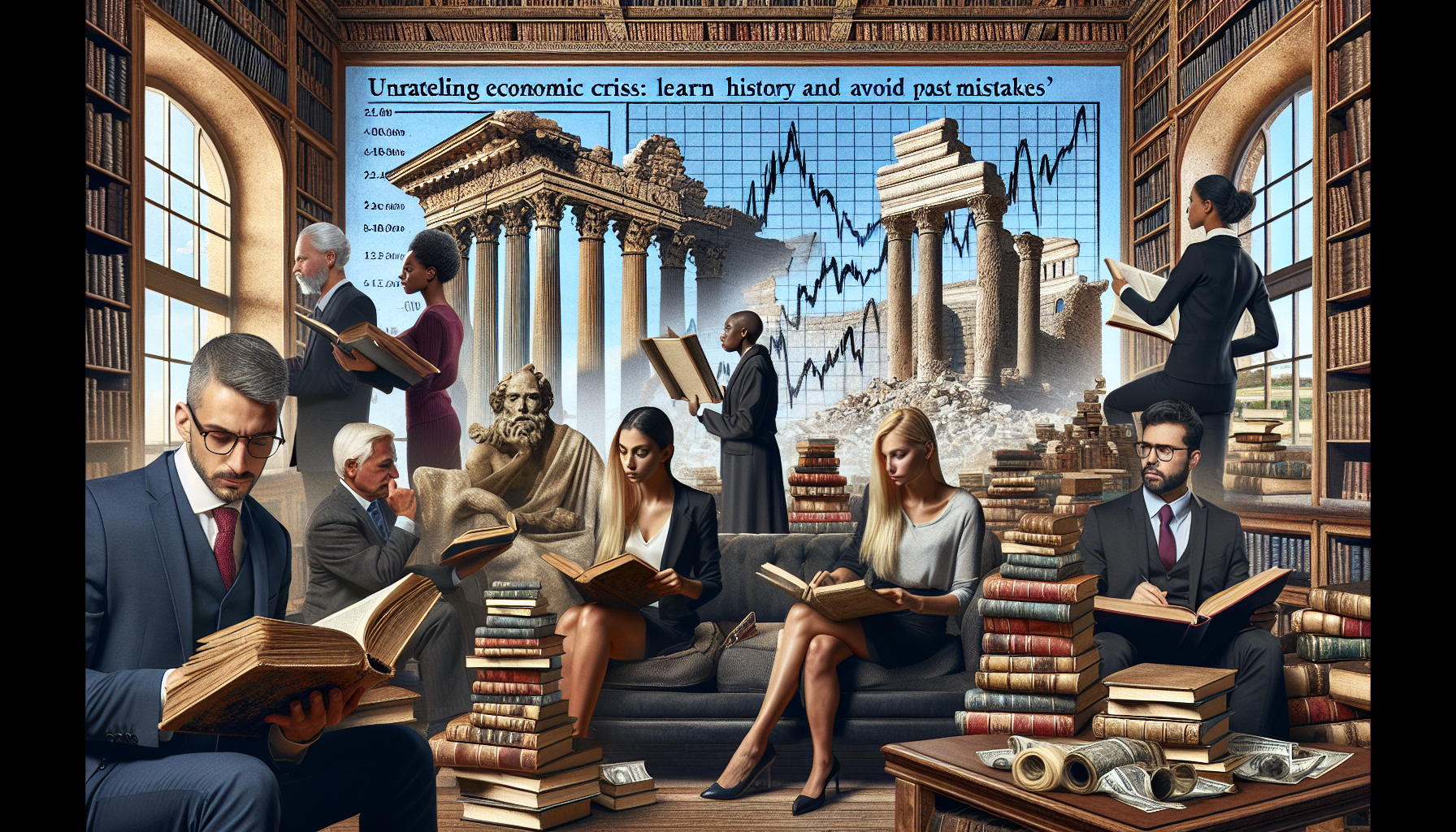Advertisements
In an unstable economic scenario marked by constant crises, it is essential to look to the past in search of lessons that can be applied in the present. History shows us that economic crises are recurring events, with causes and consequences that repeat themselves over time. In this sense, it is essential to understand the roots of these crises in order to avoid the same mistakes of the past.
By analyzing the various episodes of crisis that have marked global economic history, it is possible to identify patterns and trends that are repeated in different contexts. Unbridled speculation, lack of regulation of the financial market and lack of economic planning are some of the main factors that contribute to the worsening of crises. By studying these cases, it is possible to learn from past mistakes and adopt preventive measures to mitigate the impacts of future crises.
Furthermore, it is important to highlight the importance of transparency and governance in economic management, avoiding corrupt and irresponsible practices that can lead to financial collapse. The adoption of sound economic policies and the creation of control and oversight mechanisms are essential to ensure the stability and sustainable growth of the economy.
Therefore, unraveling economic crises and learning from history is essential to avoid repeating the same mistakes of the past. By understanding the causes and consequences of these events, it is possible to adopt preventive and corrective measures that contribute to building a more resilient and stable economy. Learning from past mistakes is the first step towards building a more prosperous and secure economic future.
Unraveling Economic Crises: Learn from History and Avoid the Same Mistakes of the Past
The importance of learning from history
History is full of examples of economic crises that shook the world and left deep scars on societies. From the Great Depression of 1929 to the financial crisis of 2008, the lessons learned from these events are valuable and can help us avoid making the same mistakes in the future. By studying the past, we can identify patterns, understand the causes and consequences of crises, and thus better prepare ourselves to face similar situations.
Advertisements
Past mistakes that should be avoided
One of the main mistakes that lead to economic crises is excessive debt. Governments, companies and individuals that borrow beyond their financial capacity run the risk of collapse when they can no longer pay their debts. In addition, the lack of adequate regulation and supervision of the financial system can lead to risky and speculative practices that end up triggering crises.
- Excessive debt
- Lack of financial regulation
- Rampant speculation
The importance of financial education
To avoid making the same mistakes as in the past, it is essential to invest in the population’s financial education. When people know how to manage their finances responsibly, they are less likely to get into debt uncontrollably and expose themselves to unnecessary financial risks. In addition, a financially educated population contributes to the strengthening of the economy as a whole.

Financial education is an essential tool for empowering individuals to make conscious and responsible decisions regarding their money, promoting stability both personally and economically. By learning about financial planning, budgeting, saving and investing, people can better manage their resources, avoiding excessive debt and building a more secure foundation for the future. This awareness not only reduces the risk of individual default and financial collapse, but also strengthens the economy collectively by encouraging more balanced consumption habits and strategic investments. Furthermore, financial education promotes greater autonomy, allowing individuals to better deal with crises and economic fluctuations, reducing dependence on external solutions. With a population that is better educated about finances, there is a direct positive impact on sustainable economic growth, reduced inequalities and social well-being. Therefore, investing in financial education is investing in the future of a more balanced and resilient society.
Conclusion
In conclusion, learning from history is essential to avoid repeating the same mistakes of the past and building a stronger, more resilient economy. Past economic crises, such as the Great Depression of 1929 and the financial crisis of 2008, teach us valuable lessons about the dangers of excessive debt, lack of financial regulation, and rampant speculation. By studying these events and understanding their causes and consequences, we can better prepare ourselves to face similar challenges in the future.
Investing in the financial education of the population is essential to avoid repeating the mistakes of the past. When people have knowledge about how to manage their finances responsibly, they contribute to the stability of the economy and avoid unnecessary financial risks. In addition, adequate regulation of the financial system and prudence in financial management are essential measures to prevent economic crises.
Advertisements
Learning from history allows us to build a more prosperous and sustainable future, based on a stronger and more balanced economy. By avoiding the mistakes of the past and adopting responsible financial practices, we can ensure more stable and lasting economic development. In short, historical wisdom is the key to avoiding the same mistakes and building an economy that is better prepared for the challenges of the future.
Learning from historical events is essential to shape a more prepared, sustainable and resilient economy in the face of future challenges. Past economic crises, such as the Great Depression of 1929, the oil crisis of the 1970s and the financial collapse of 2008, were not only moments of hardship, but also valuable lessons about the risks of irresponsible financial practices, market deregulation and the fragility of interdependent economic systems. These experiences reinforce the importance of effective public policies, adequate regulation and financial education to strengthen both the global and individual economies. When people better understand how to manage resources and make informed choices, they help create a more stable and secure economic foundation. In addition, historical analysis encourages us to seek innovation and adapt strategies to mitigate future crises, reducing vulnerabilities. Thus, studying the past is an indispensable pillar for building a solid, balanced economy capable of thriving in unpredictable scenarios.




